Advanced Keyword Research Tips: Rank Medium In Google
Did you know that there are special tools and techniques that you can use to do advanced?
If you’re looking to improve your , then it’s important to make sure that you’re targeting the right keywords.
In this blog post, we’ll discuss some of the best tips for doing advanced keyword research. By using these tips, you’ll be able to find valuable keywords that will help you reach your target audience. So don’t miss out – read on to learn more!
In this article, you’ll learn:
- Ranking for more keywords by analyzing top SERPs
- Use question-based search terms
- Expanding PAA
- Competitor sitemap research
- Google Console’s ninja technique
- Top pages keywords via Semrush & Ahrefs
- Google Auto Suggestions method
7 Advanced Keyword Research Tips
The traditional means of conducting keyword research to rank your website will not suffice. You will have to implement unique and less-known approaches to achieve success.
In order to improve your ranking, here are some advanced keyword research tips:
1. Ranking For More Keywords by Analyzing Top SERPs
Do you know? It is possible for one article to rank for more than a thousand keywords.
The majority of people believe that a single page should be optimized for only one keyword, but that is no longer the case.

As an example, Backlinko’s On-Page SEO guide ranks for more than a thousand keywords and receives over ten thousand visitors a month.
Just enter your keyword into Ahrefs Site Explorer and select the keywords that are relevant to your topic and optimize your page.
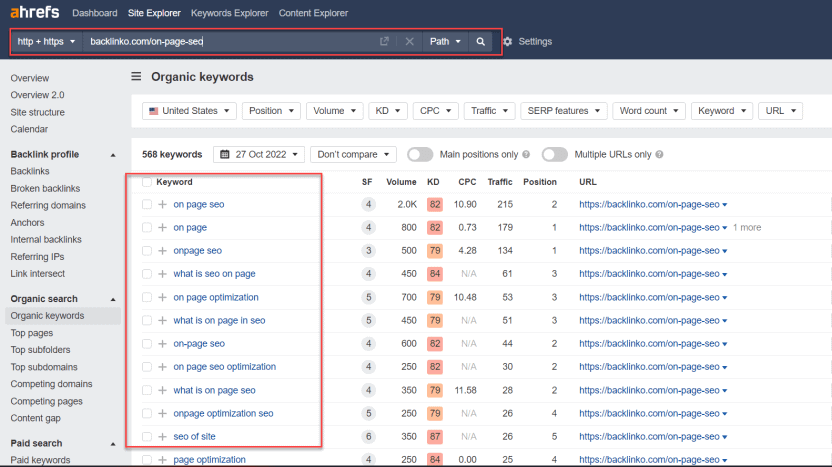
You should analyze the competitors’ pages that rank for the relevant keywords. In this case” ranks for the keyword On-Page SEO Definition, which has a search volume of 70 and ranks third.

Here’s how Backlinko displayed the page.
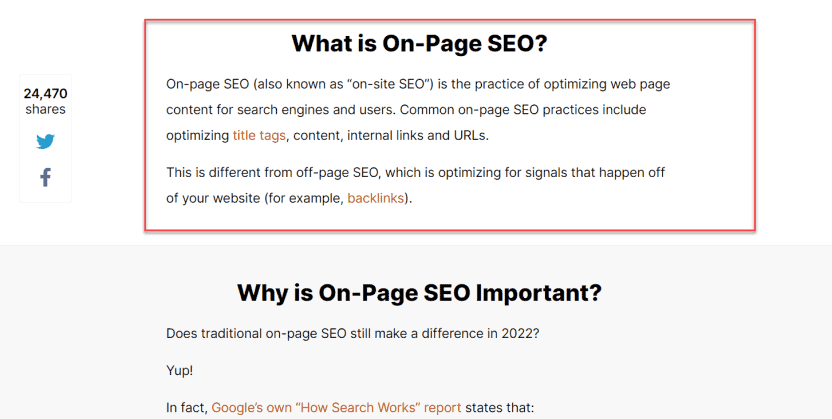
The Semrush tool can also be used for finding keywords ranking for a page, in addition to Ahrefs.
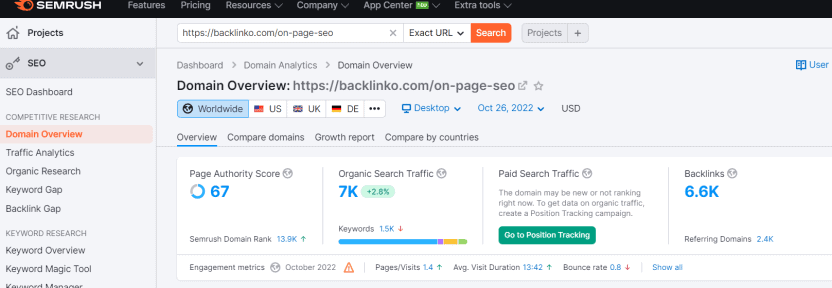
Then, scroll down and click on the “View Details” link to see the “Top Organic Keywords.”
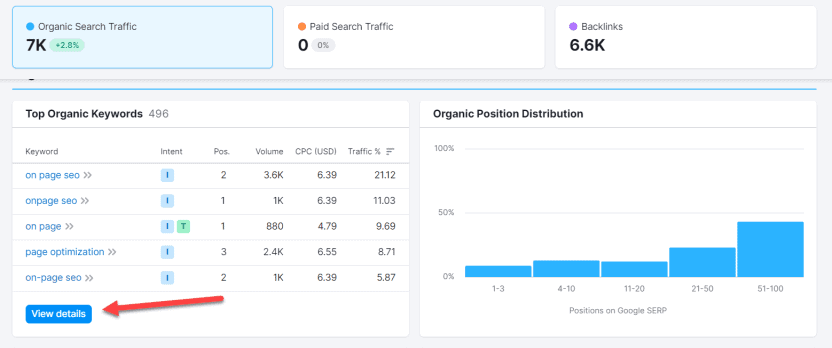
My favorite way to find out which keywords will bring significant traffic is to use this technique.
2. Use Question-Based Search Terms
Essentially, question-based keywords ask questions. For example, if you were creating content about dog breeds, a question-based keyword could be “What are the best dog breeds?”

Using question-based keywords in your content has several benefits:
- People are more likely to type a question into a search engine than a simple keyword or phrase, so by using question-based keywords. Increasing the number of people who are interested in your content will increase your chances of attracting them.
- Second, question-based keywords tend to be less competitive than other keywords, which means it will be easier for your content to rank high in the SERPs.
- Finally, using question-based keywords can help to make your content more engaging and interesting, which is always a good thing.
A good way to find question-oriented keywords is by using AnswerthePublic, which helps you generate such keywords and topics. Using this tool, you can discover what people are looking for online.
By understanding what questions people are asking about your niche, your content will be able to answer those questions and improve your search engine rankings (SERPs).
Just type in the keyword you’re working with, such as “best dog breeds” and it’ll generate multiple questions.

It’ll provide you with a multitude of questions upon which you can You can also download all of these options by clicking the “Download CSV” button.
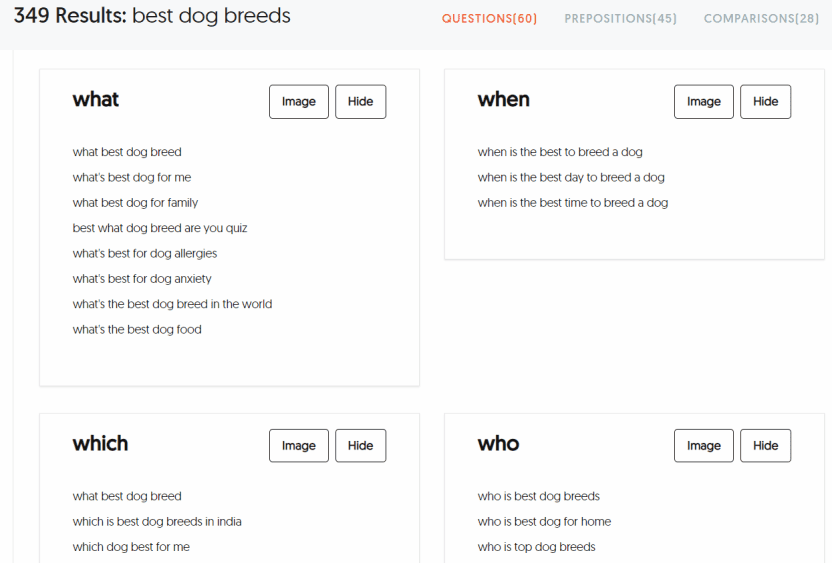
So if you’re looking engines, make sure to use plenty of question-based keywords in your content. Your traffic can be significantly affected by it.
3. Expanding People Also Asked
PPA (or People Also Asked ) is a great way to find keywords for your SEO content strategy.
PAA allows you to research questions that people are actually asking about your topic and then provides keyword suggestions based on those questions.
This can be an invaluable tool for finding new keywords to target, as well as identifying potential gaps in your content.
PAA provides infinite loops of keywords relating to the topic, which helps to broaden your keyword research that would otherwise not be possible.
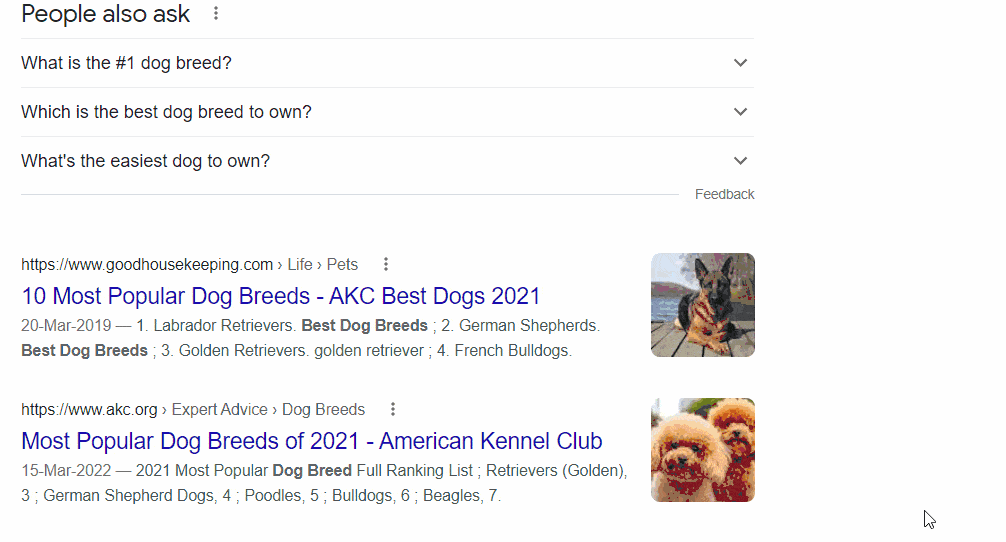
In most cases, you’ll find extremely valuable keywords. For instance, the question in PPA, “What is the easiest dog to own?” receives more than 3000 visitors each month and ranks for more than 2,900 keywords.

You can use a free tool AlsoAsked to get additional keyword research ideas. The mindmap is designed in such a way that users will be able to understand it easily.
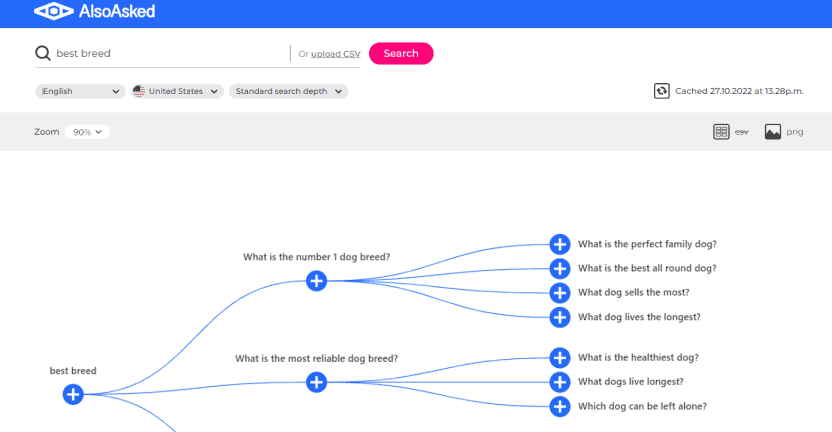
4. Competitor Sitemap Research
Sitemaps allow you to find unlimited topic ideas without the need to hit your head against the wall all the time.
The idea is simple. Choose your competitor who has a lower domain authority than yours but gets significant traffic to their site.
For example, let’s say that you run Neilpetal.com and have a domain authority of 89.
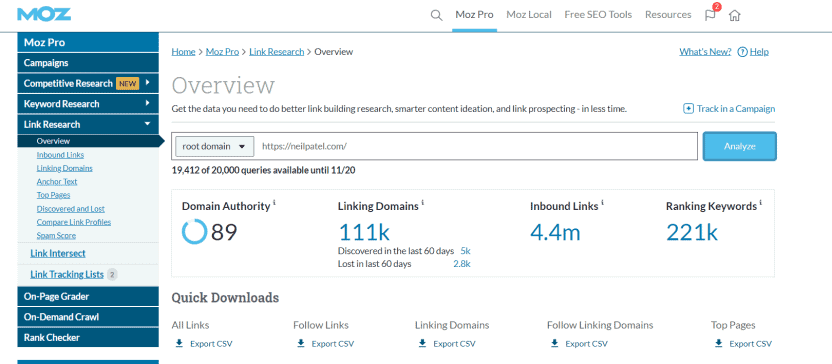
And your primary competitor is wpbeginer.com, with a domain authority of 83 — it must be lower than your DA.
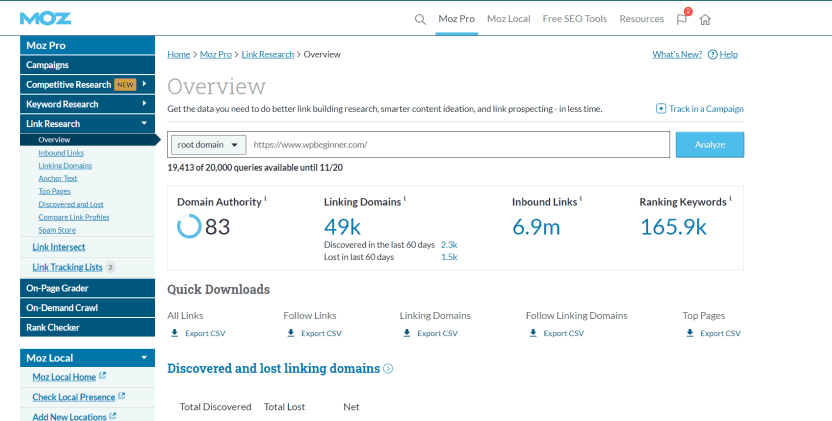
Essentially, it means you have the possibility of bringing in an additional 3 million visitors to your website.
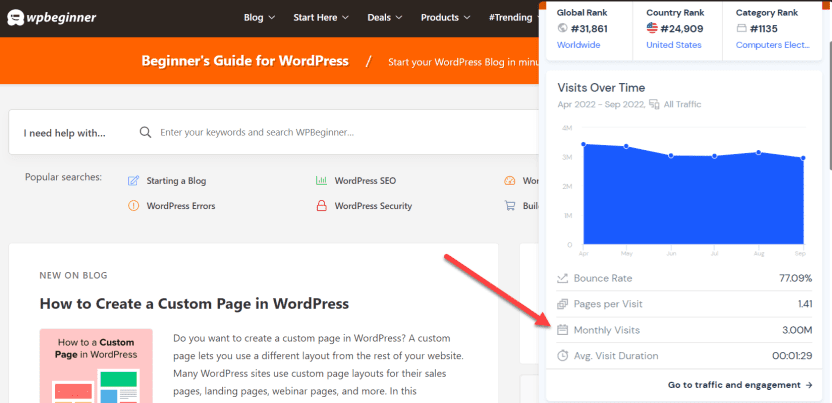
As you can see, there are two options. Either you write about every topic your competitors cover, or you stick to topics that get a lot of traffic. I will explain how to accomplish the first tactic and for the latter part, please refer to Tip #6.
To begin with, we need to find the sitemap of the competitor. As shown in the screenshot, the sitemap for your competitor can be found by placing sitemap.xml in the root directory of the domain.
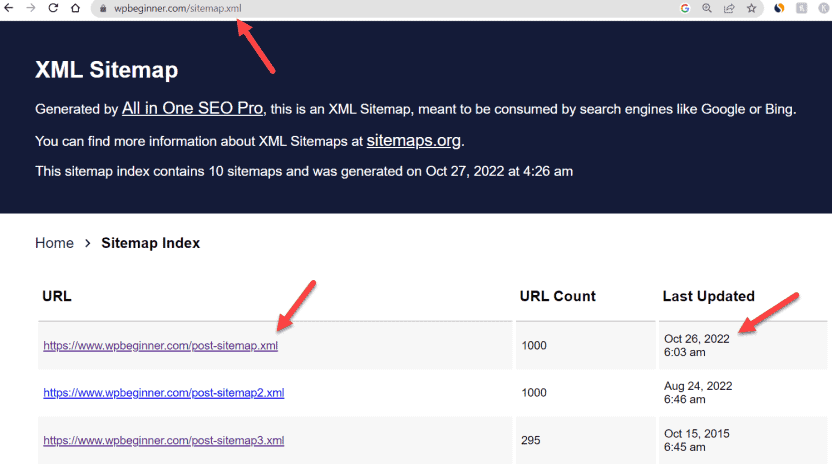
There is a 99.99% chance that its location is mentioned in the if it does not work
